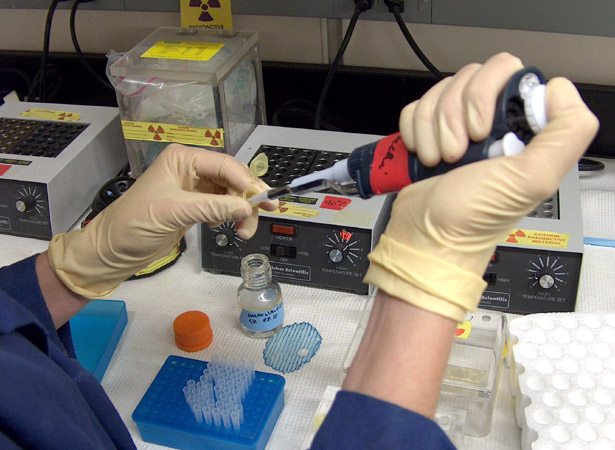Science Communication Breakdown (I Got Something I Think You Oughtta Know)

I used to work as a cook. And, as “Top Chef” aficionados know, teamwork is essential to cooking a good meal and getting it out on time. You can imagine how much more important teamwork is in today’s world of multi-institution, interdisciplinary research initiatives targeting complex scientific questions. Luckily, a new field of study is rising up to help researchers work in teams more effectively. And researchers better listen, because their grant money is on the line.
A new commentary paper in Science Translational Medicine is heralding the new field, called the “science of team science” (SciTS, rhymes with kites). SciTS has actually been around for a couple of years, but hasn’t had a very high profile. The Science commentary aims to change that by bringing the research community up to speed on SciTS – and explaining why it is important for everyone to pay attention. (For example, problems can definitely crop up if two researchers use the same term to refer to two completely different things. A lot of research could be done before either party realizes the misunderstanding.) The paper was co-authored by social, physical and life science experts from NC State, UC Irvine, Northwestern and several other institutions.
The gist of the paper is that miscommunication, inconsistent decision-making and team performance evaluations are not new problems – they are just relatively new to the world of scientific research. Social scientists in arenas from communication to public policy have long studied how to improve the way that teams work together to achieve a common goal. In short: you don’t have to start from scratch – you can work with social scientists to ensure that your research team is making optimal use of resources and working together effectively.
And this isn’t just about making sure your research team is happy – research money is on the line. From federal agencies to private institutions, the entities that dole out grant money increasingly require assurances that a research team will have the capacity and know-how to work together in a productive way. Just getting a bunch of smart people together isn’t going to be enough; they want to know that those smart people can communicate effectively, make informed decisions and coordinate their efforts in an efficient way.
So, to keep that grant money flowing, make sure that your team is on the same page – even if one person says “potato” and another says “po-tah-to.”
- Categories:


